

At the end of the day's proceedings, Minister Luiz Fux expressed his gratitude to both national and international speakers who presented their arguments. He emphasized the importance of the democratic and participatory process of the public hearings convened by the Supreme Federal Court (STF), noting that the ministers do not have mastery over all the topics discussed. The public hearing continues this Tuesday (12th) from 10 a.m. to 12 p.m.
The case was brought to the Supreme Court in Direct Action of Unconstitutionality (ADI) 7721, in which the National Confederation of Commerce of Goods, Services, and Tourism (CNC) requests that the Bets Law (Law 14,790/2023) be declared unconstitutional by the STF.
When calling the hearing, Fux explained that the aim is to clarify issues related to mental health, the neurological impacts of betting, the economic effects on commerce, its impacts on the domestic economy, and the social consequences of this new regulatory framework.
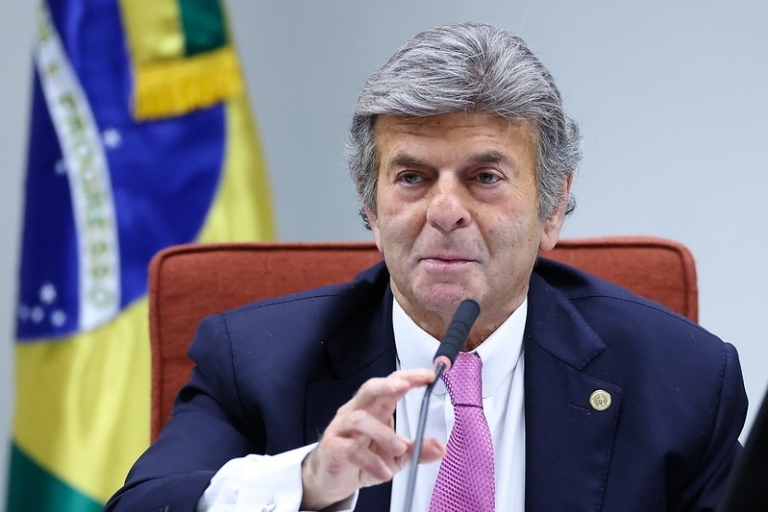
Below is a summary of the presentations:
Morning
Felipe De Sá Tavares, representative of the National Confederation of Commerce of Goods, Services, and Tourism (CNC)
The chief economist of the CNC, the plaintiff in the case, argued for the need to regulate online betting. According to him, the decision is delicate and should be based on evidence. Among the studies presented by the CNC, he highlighted data showing the uncontrolled growth of betting in the country, with a negative impact on the consumption patterns of Brazilian families.
Paulinho da Força, federal deputy and president of the Solidariedade party
The congressman stated that betting platforms do not generate jobs or taxes in Brazil and send the money earned in this sector abroad. He urged the STF to stop what he called the “dragon” that, if not restrained, “will continue to consume the money of poorer Brazilian citizens.”
Leonardo Albernaz, representative of the Federal Court of Accounts (TCU)
The Secretary of Internal Control at the TCU reported that the agency is monitoring the online betting sector, focusing on five areas: public health, bettors' indebtedness, money laundering risks and other crimes, data security, and tax issues related to betting companies. He also mentioned that the findings will be forwarded to the Executive Branch, National Congress, and STF.
Cecilia Vieira de Melo Sá Leitão, representative of the Office of the Prosecutor General (PGR)
The federal prosecutor explained that the presence of the Federal Public Ministry at the public hearing is mainly to listen to all the participants’ statements, which will serve as technical support in preparing the opinion that the PGR will present to the STF on the case.
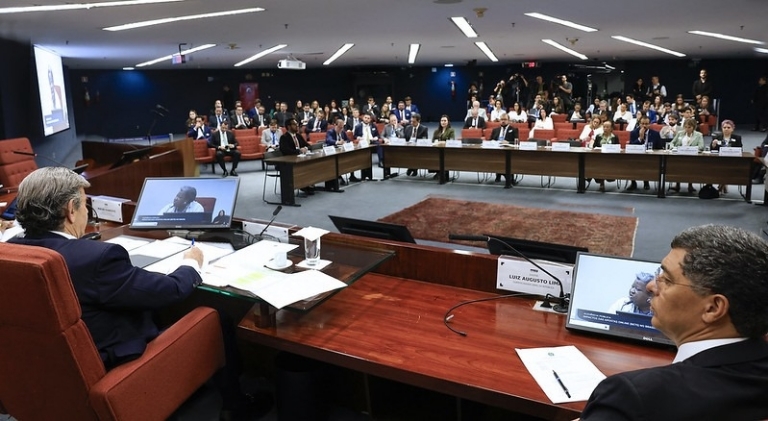
Regis Anderson Dudena, representative of the Ministry of Finance
The Secretary of Prizes and Bets (SPA) from the ministry believes that the Bets Law has addressed critical gaps by enhancing legal certainty, bettor protection, and popular economic welfare. Dudena explained that the secretariat is equipped to regulate this issue.
Adriano Massuda and Sônia Barros, representatives of the Ministry of Health
The Secretary of Specialized Healthcare called for stricter regulation, emphasizing the severity of mental health damage. Meanwhile, the Director of the Department of Mental Health presented data on the increase in betting, the amounts wagered, and the number of patients treated for gambling disorders at healthcare units. The study shows that spending among poorer families is 32% higher compared to wealthier ones.
Clara Carolina de Sá, representative of the Ministry of Social Development and Fight Against Hunger
She noted that although it is not yet possible to clearly estimate the real impact of betting in the country, various studies indicate negative consequences, such as family indebtedness and effects on state revenue. She stressed that easy access to betting platforms and the encouragement of consumption could lead to compulsive behavior, disproportionately affecting the most vulnerable social classes.
Gustavo Binenbojm, representative of the Brazilian Association of Radio and Television Broadcasters (Abert)
He defended Law 14,790/2023 for regulating the sector, arguing that it aligns with international standards and imposes strict requirements on betting companies and the advertising of these services.
Afternoon
Ana Míria Carvalho, representative of the Ministry of Racial Equality
The Deputy Secretary expressed concern about the disproportionate impact of betting on Black and Brown populations. She stressed the need for careful regulation and more research focusing on social markers like race and gender.
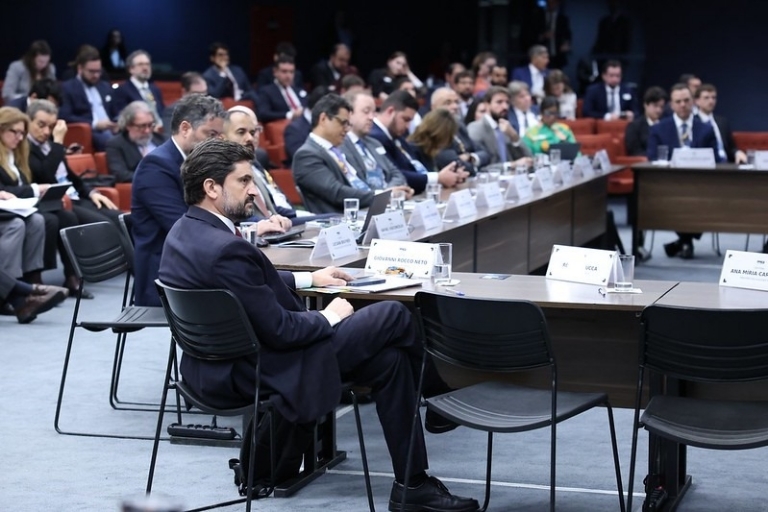
Giovanni Rocco Neto, representative of the Ministry of Sports
The National Secretary for Sports Betting and Economic Development emphasized the necessity for swift and effective action against illegal betting sites. He stated that the ministry is greatly concerned about the potential damage to the country's sports image. “Brazilian football, our national passion, must be protected, with special attention to safeguarding children and adolescents,” he said.
Luciana Leal, representative of the Office of the Attorney General of the National Treasury (PGFN)
The Deputy Administrative Attorney General highlighted that the law introduces provisions to mitigate harm to the economy, personal finances, and the health of Brazilians. However, its protective effect can only be assessed once the regulated market becomes operational in January 2025.
Rafael Bezerra Ximenes de Vasconcelos, representative of the Council for Financial Activities Control (Coaf)
The institution’s Director of Supervision pointed out the unique risks of the betting sector being used for money laundering and related crimes. In his view, although the current law meets international standards, rigorous monitoring of transactions and the prompt reporting of suspicious activities to Coaf are essential.
Leonardo Cardoso de Magalhães, representative of the Federal Public Defender's Office (DPU)
The Federal Public Defender General stated that the law represents progress but believes additional measures are needed to mitigate social consequences for the most vulnerable families. He emphasized that the debtor's financial responsibility should take precedence, especially when the livelihood of a child or the dignity of a worker is at stake.
Daniel Corrêa Homem de Carvalho, representative of the Federal Council of the Brazilian Bar Association (CFOAB)
The president of the Special Commission on Sports, Lottery, and Entertainment Law argued that the Ministry of Finance is appropriately addressing all the issues attributed to the unregulated betting system. “If we abandon consumers and compulsive gamblers to the clutches of illegal websites, there will be no control. Public health, consumer finances, and sports integrity will suffer even more,” he stated.
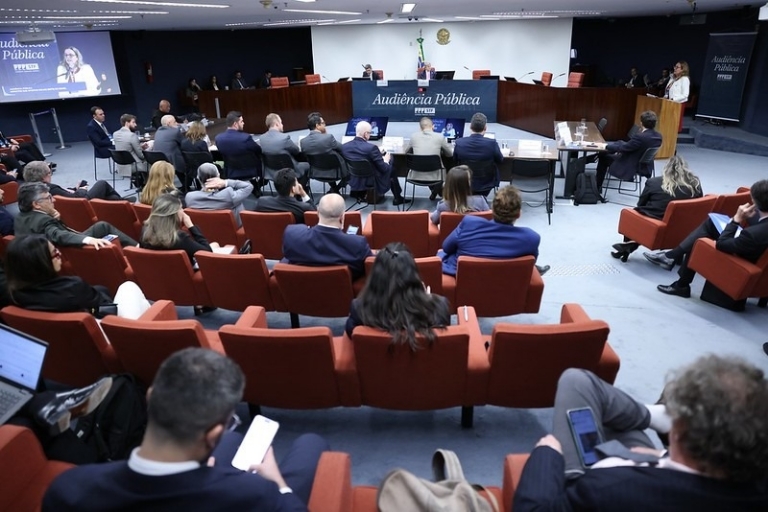
Hazenclever Lopes Cançado, representative of the State Lottery of Rio de Janeiro (Loterj)
The president of Loterj claimed that Rio de Janeiro’s example demonstrates that sports betting can be regulated while upholding constitutional rights, such as human dignity, healthcare, child and adolescent protection, and the interests of vulnerable populations. He noted that regulated betting in Rio de Janeiro has been operating for 18 months without issues, collecting taxes and generating jobs, wealth, and income.
Pablo Wosniacki and Rafael Halila Neves, representatives of the State Lottery of Paraná (Lottopar)
Wosniacki, Operational Director Advisor, stated that the lottery market in Paraná is regulated and secure. Neves, the technical director of the state authority, added that regulation offers an opportunity to educate society, and the lack of clear rules would hinder effective oversight of the sector.
Juliana Nakata, representative of the National Council for Advertising Self-Regulation (Conar)
The Executive Vice President of Conar noted that the organization has established guidelines to ensure that betting advertisements do not promote the idea of quick wealth, emphasize responsible gambling, and are not targeted at children.
Magno José Santos de Sousa, representative of the Brazilian Institute of Legal Gaming (IJL)
The president of the institute highlighted the invasion of illegal sites operating from abroad, exploiting the absence of regulation in what he described as a “reckless and criminal” manner.
Pietro Cardia Lorenzoni, representative of the National Association of Gaming and Lotteries (ANJL)
Lorenzoni believes that regulating the sector will address concerns related to pathological gambling and the prohibition of betting by minors. He also mentioned that regulation could generate over R$ 4 billion in licensing fees, plus tax revenue.
Andreia Schroder, representative of the Women of Brazil Group
She emphasized the need to consider the profile of bettors when regulating the sector. In her view, the impact on family budgets is significant, as 85% of bettors come from lower-income classes (C, D, and E) and many have already experienced financial losses.
Frei David Santos, representative of the NGO Education and Citizenship of Afro-descendants and the Underprivileged (Educafro)
He opposed the regulation of betting but suggested, if it does proceed, using biometrics and facial recognition to prevent minors from gambling. He advocated for allocating 50% of prize revenue to social programs and for state control of games to ensure net income benefits public initiatives.
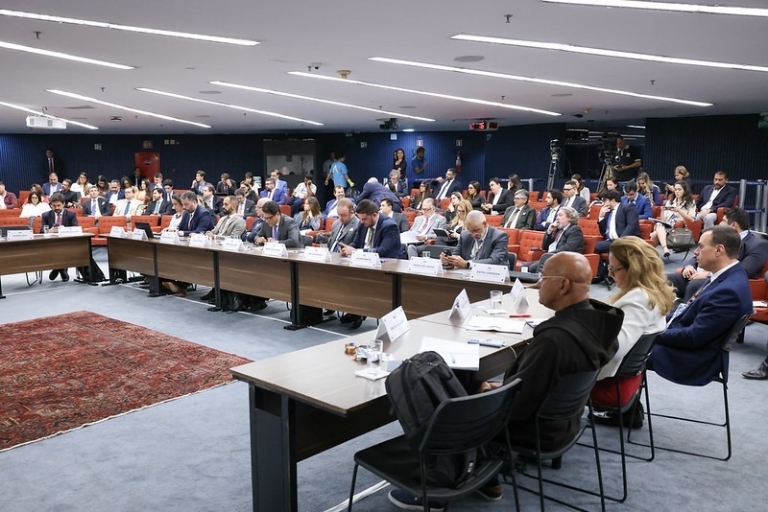
Celso Cintra Mori, representative of the Brazilian Institute for Responsible Gaming (IBJR)
He defended the Bets Law, claiming it enables the Ministry of Finance to enact regulations that maintain sector legality, identify pathological gamblers for treatment, and curb money laundering.
Hermano Tavares, representative of the Brazilian Psychiatry Association (ABP) and the Brazilian Association for the Study of Alcohol and Other Drugs (Abead)
A professor at USP and member of ABP’s psychiatry committee, Tavares argued that the control mechanisms in the Bets Law are inadequate for preventing pathological gambling. He claimed the gaming industry fosters excessive gambling and the illusion of control, and thus betting advertisements should be banned from media and restricted to sales points.
Márcio Borges Malta, representative of the International Gaming Association (Aigaming)
Malta stated that Brazil has between 28 and 30 million bettors, with most studies on gambling addiction focused on physical games. He advocated responsible gaming, including user identification, spending limits, network-wide blocking of pathological gamblers, and risk alerts.
Luís Vicente Magni De Chiara, representative of the Brazilian Federation of Banks (Febraban)
The legal director of Febraban revealed that initial analyses of online betting indicate impacts on credit and rising default rates. He noted that most bettors are young adults aged 20 to 30, spending about R$ 100 monthly on digital bets, with the majority from lower-income classes (C, D, and E), who typically have less financial literacy and face greater challenges accessing credit.
Brigitte Sand, foreign expert
The consultant and former director of the Danish Gambling Authority shared Denmark's experience in gambling regulation. She explained that legislation passed unanimously by Parliament in 2010 aimed to protect bettors and ensure that services are offered “fairly, responsibly, and transparently.” According to her, nine out of ten Danish bettors participate in the legal market, demonstrating that the new regulation was well-received and that players prefer to gamble responsibly within a regulated environment.
Carlos Hernández Rivera, foreign expert
The former director-general of Spain’s gambling regulatory body led the entity during the country's market regulation. He believes that regulating both physical and online gambling is the best way to protect society and the economy from the negative effects of the activity. Spanish law, he explained, aims to prevent pathological behavior, especially among vulnerable groups, and prohibits activities such as money laundering and terrorism.
João Francisco de Aguiar Coelho, representative of the Alana Institute
He stated that the organization defends the rights of children and adolescents, who are the most affected by the proliferation of online gambling. Being in a developmental stage, children and teens are more susceptible to the harms of gambling because their brains are not equipped to handle the stimuli and addictive aspects of these games as adults can.
Andrea Magalhães, from the Economic Regulation Laboratory at the Law School of Rio de Janeiro State University (UERJ)
The researcher emphasized that delaying regulation could render control of these activities unfeasible. She noted that online betting already causes proven social, economic, and mental harm, and regulatory strategies must be implemented and constantly updated.
Isadora Valadares Assunção and Pedro Henrique Figueiredo, from the New Technologies Law and Disruptive Business Models Lab at USP (NPD TechLab)
Assunção discussed how online betting platforms use manipulative digital strategies that obscure information, confusing consumers and influencing them to make decisions they wouldn’t make if fully informed. Figueiredo added that these platforms often hide game operation details, presenting instructions in separate tabs, overwhelming users with on-screen information, and providing explanatory videos in foreign languages.
Source: GMB/STF